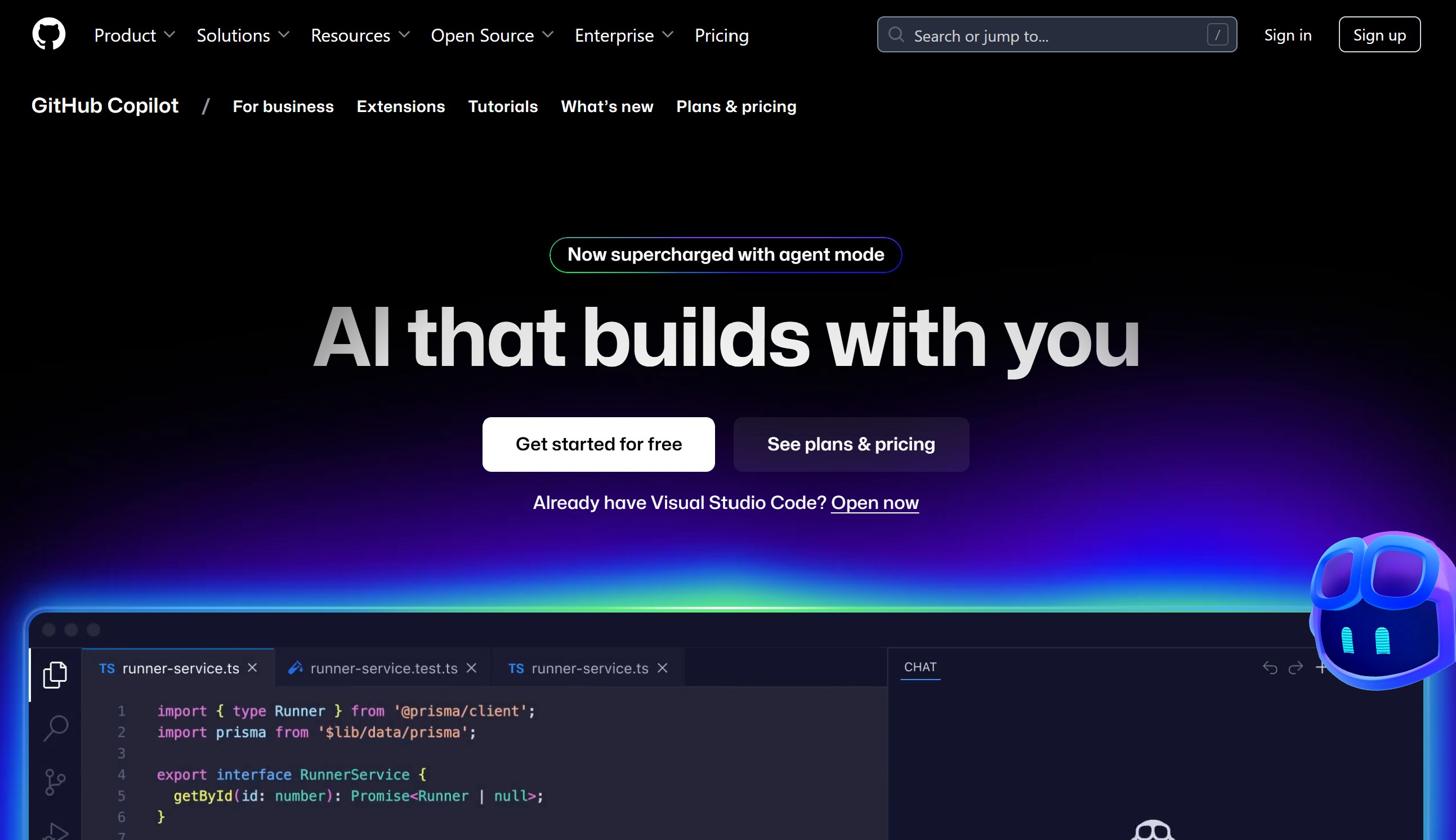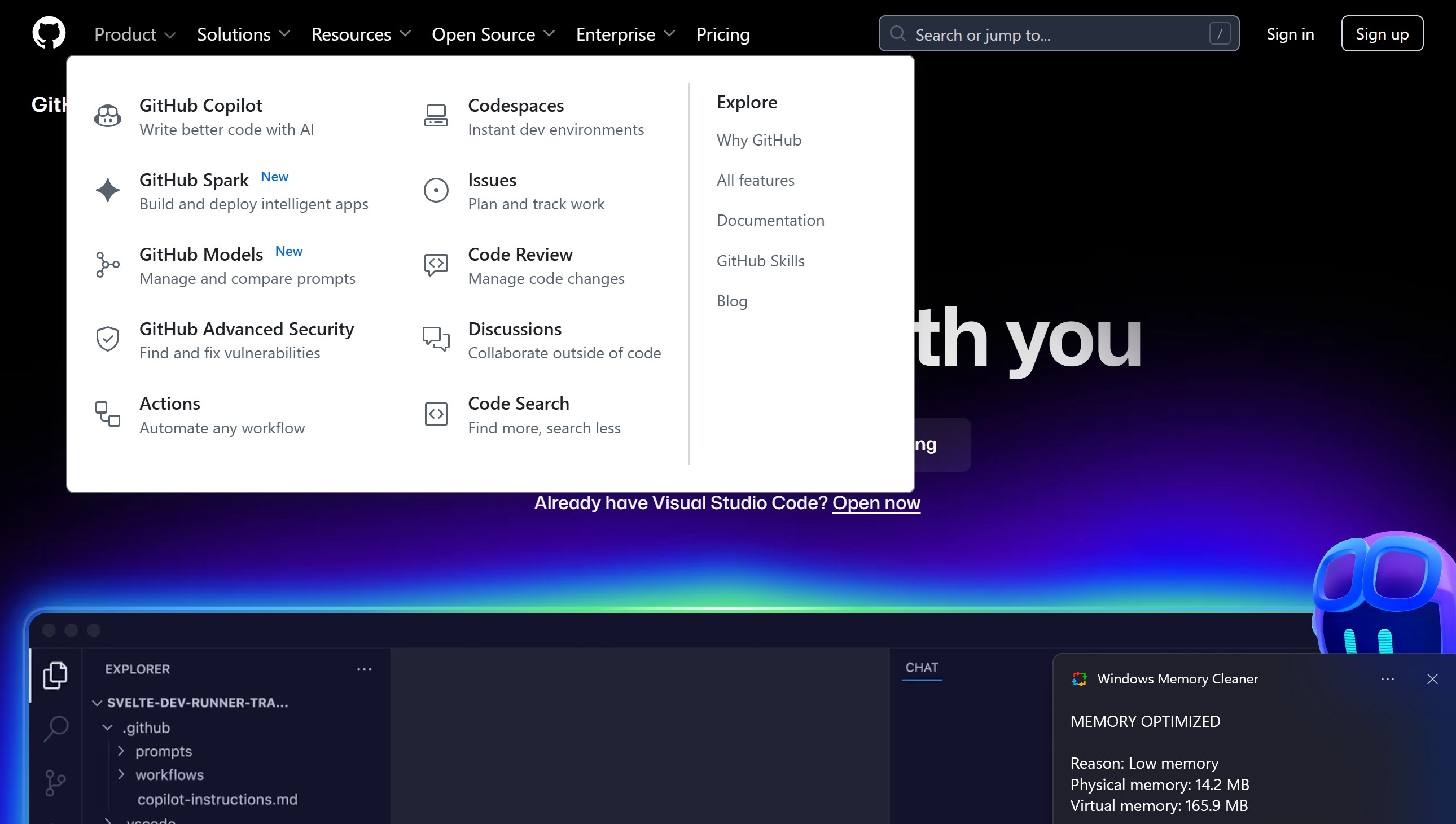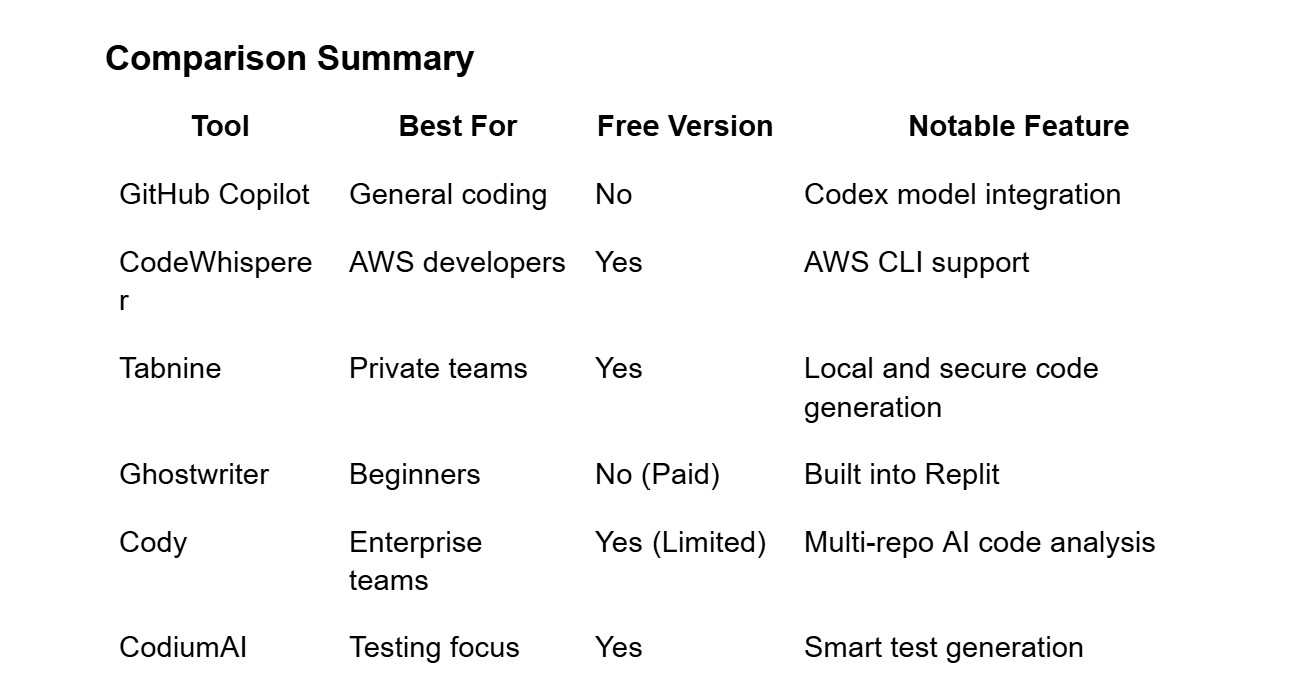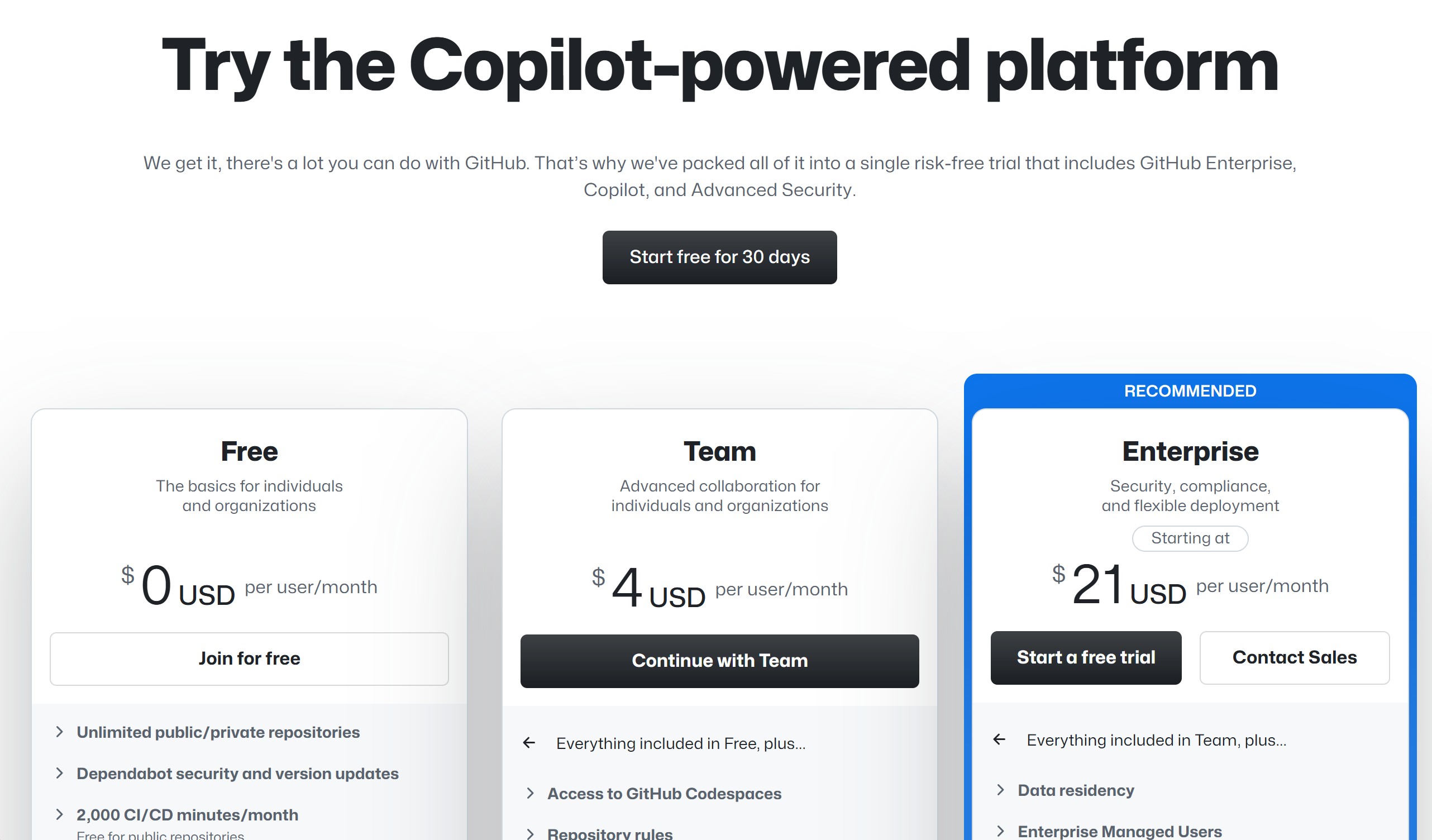GitHub AI Tool Review 2025: Top Features, Use Cases, Free Alternatives & Comparison for Beginners

1. Introduction to GitHub AI Tools
The rise of AI-powered development has transformed how developers write, review, and optimize code—and GitHub AI tools are leading this charge. At the core is GitHub Copilot, GitHub's flagship AI assistant, designed to help developers write code faster, reduce repetitive tasks, and improve code quality. But the broader category of GitHub-integrated AI tools goes well beyond Copilot, offering support for project management, documentation, error detection, and collaborative workflows.
In 2025, GitHub AI tools are no longer limited to elite developers. They now cater to beginners, students, startups, and even large enterprise teams looking to automate and streamline their workflows. These tools are deeply integrated into the GitHub ecosystem and offer support for multiple languages and frameworks, making them a versatile choice across industries.
As AI adoption continues to rise, GitHub AI tools are becoming essential for anyone writing or managing code. Whether you're exploring the best GitHub AI tool for beginners or comparing free vs. premium options, understanding what these tools can do—and how they compare—is a critical step toward modern, efficient software development.
2. Key Features of GitHub AI Tool in 2025
GitHub AI tools have evolved significantly, now offering a feature set that blends automation, code intelligence, and team collaboration.
GitHub Copilot suggests real-time code completions based on your natural language comments and coding patterns.
Copilot X expands this with chat-like support, documentation lookup, and pull request summaries inside your IDE.
AI-powered auto-tagging and issue generation help developers manage bugs and tasks more efficiently.
Tools like GitHub Actions integrate AI into workflows for CI/CD automation.
GitHub Advanced Security includes AI for scanning vulnerabilities and dependency risks in real-time.
You can use the GitHub API to build custom AI-powered bots for repo maintenance or contribution insights.
Natural language search allows team members to find code snippets or file references without syntax precision.
Code review assistance leverages AI to spot potential issues or suggest improvements.
Semantic code search is another powerful feature—understanding code context, not just keywords.
GitHub Discussions can be enhanced with AI summarizers, making it easier to onboard contributors.
AI tools also integrate with project boards, streamlining task updates and status tracking.
From beginners using Copilot for simple HTML to enterprise teams running predictive code analytics, GitHub AI features cover every level of developer need.
These tools turn GitHub from a repository into a smart development environment.
3. GitHub AI Tool Use Cases: How Real Devs Use It
The power of GitHub AI tools isn’t just in theory—it’s in how developers across the world are putting them to work daily. Whether you're a solo coder learning Python or part of a fast-moving product team, these tools are solving real pain points in coding, debugging, and deployment.
One of the most popular use cases is code generation. Developers use GitHub Copilot to autocomplete entire functions, saving time on syntax, boilerplate, and even complex logic scaffolding. This is especially helpful when jumping between languages or APIs you’re not fully fluent in. You simply comment what you want, and Copilot offers a suggestion in seconds. For example, a junior developer might type # function to validate email and instantly get a working code block.
Another major use case is documentation generation. Teams using Copilot X can auto-generate or improve code comments and documentation directly within the IDE. This saves hours during sprint planning and onboarding. The AI model can reference existing code structure and explain it in plain English—ideal for technical leads reviewing junior dev output.
In larger teams, AI is being used for pull request summarization and intelligent code reviews. Copilot can analyze PRs and highlight what changed, suggest improvements, and identify red flags like missing unit tests. This creates faster feedback loops and reduces review fatigue. DevOps teams are using GitHub Actions in tandem with AI to automate build tests, deploy scripts, or flag potential conflicts during merge.
For open source maintainers, tools like GitHub Issue Classifier and custom-trained AI bots help sort issues, tag them appropriately, and respond with relevant documentation links. This keeps popular repos like React, Vue, and Node.js running smoothly despite huge contributor volumes.
Students and beginners also benefit. With GitHub Student Developer Pack, they get free access to AI tools and can experiment with code suggestions, learn through guided prompts, and reduce their learning curve dramatically.
In short, GitHub AI tools are being used to accelerate nearly every stage of the software lifecycle—from writing code and documenting it, to reviewing, deploying, and maintaining it. What started as a code autocomplete tool has now become an ecosystem that reshapes how we collaborate and create software in real time.
4. GitHub AI Tool for Beginners: How to Start Smart

Getting started with GitHub AI tools doesn’t have to be overwhelming.
If you're new to GitHub or just beginning to explore AI-assisted development, GitHub Copilot is the most accessible place to begin.
You’ll need a GitHub account and an IDE such as Visual Studio Code or JetBrains to install Copilot.
Once installed, Copilot works behind the scenes to suggest code as you type, based on your comments, context, and intent.
It supports multiple languages like Python, JavaScript, Go, TypeScript, and more.
This makes it useful for students, bootcamp learners, and hobbyists exploring their first coding projects.
One of the most beginner-friendly features is the ability to start with natural language.
You can type something like # create a function to calculate sales tax, and Copilot will instantly generate the code block.
This hands-on feedback accelerates learning and bridges the gap between understanding logic and writing syntax.
You can also start small with Copilot’s GitHub Student Developer Pack, which gives free access to premium tools if you're enrolled in school.
Another beginner-friendly option is exploring AI-powered GitHub extensions like Cody or Tabnine, which work similarly to Copilot but with varied code suggestions.
They offer different levels of customizability and may even be free to use with limited functionality.
Set up a test repository to experiment without the pressure of affecting live projects.
Explore Copilot Labs for advanced support like code translation between languages or explanation of code logic.
Use GitHub Discussions or Community forums if you're stuck—many developers share examples and solutions tailored for beginners.
Don’t worry about perfection.
The AI is there to help, not judge.
It improves the more you use it and begins to align with your unique coding style.
Here’s what to keep in mind:
- Install Copilot in your preferred IDE
- Start with simple project ideas
- Use clear comments to guide the AI
- Review code suggestions before accepting
- Explore Copilot Labs for experiments
- Rely on GitHub’s learning resources and community
By starting with small, guided steps, even non-technical users can harness the power of AI in their GitHub workflow.
And once you get the hang of it, AI becomes less of a crutch—and more of a coding partner.
5. GitHub AI Tool vs Competitors: Best Alternatives Compared
While GitHub Copilot is arguably the most well-known AI tool for developers today, it's far from the only option. Several tools offer similar or even expanded capabilities, depending on your use case, team size, and budget. Let’s break down some of the top alternatives and see how they compare.
1. GitHub Copilot (Baseline)
GitHub Copilot uses OpenAI Codex to generate real-time code suggestions. It integrates directly into Visual Studio Code, JetBrains, and GitHub. Its strengths lie in ecosystem compatibility and natural language coding.
- Best For: Developers using GitHub or VS Code daily
- Pros: Seamless integration, clean UI, high code quality
- Cons: Paid subscription ($10/mo), limited to GitHub-owned repos
2. Amazon CodeWhisperer
Amazon’s CodeWhisperer supports real-time code generation and is tightly integrated with AWS services. It's free for individual developers.
- Best For: Cloud-native developers, AWS ecosystem users
- Pros: Free tier, strong AWS tie-ins
- Cons: Fewer language supports, more AWS-focused
3. Tabnine
Tabnine offers both a free plan and pro version, using its own LLM tailored for code. It emphasizes privacy and allows on-prem hosting for enterprises.
- Best For: Teams concerned with security or working offline
- Pros: Lightweight, customizable, secure
- Cons: Suggestions can lack depth compared to Copilot
4. Replit Ghostwriter
Ghostwriter is a native AI assistant for Replit users. It's best for beginners or those building in-browser.
- Best For: Learners and rapid prototyping
- Pros: Built-in for Replit, easy to use
- Cons: Limited to the Replit IDE environment
5. Cody by Sourcegraph
Cody is an AI pair programmer built for codebases of any size. It can understand multi-repo context and explain changes across files.
- Best For: Large engineering teams, enterprise settings
- Pros: Multi-repo intelligence, codebase context
- Cons: Requires Sourcegraph environment
6. CodiumAI
CodiumAI focuses on test generation and code logic validation. It’s a helpful addition to other tools for improving code quality.
- Best For: QA testers, DevOps engineers
- Pros: Testing focus, logic explanation
- Cons: Not a full IDE assistant
Comparison Summary

While GitHub Copilot remains the most broadly adopted, each alternative offers unique benefits depending on your platform and priorities.
6. Free & Affordable GitHub AI Tool Alternatives
Not every developer or team has the budget for premium AI development tools, and thankfully, the GitHub ecosystem supports several powerful free or low-cost alternatives.
One of the most accessible options is Tabnine, which offers a free plan with limited completions and an intuitive setup across multiple IDEs.
CodeGeeX is another standout—a free multilingual AI code generator that supports over 10 programming languages.
If you're looking for a GitHub-integrated tool with solid community support, Codeium is free for individuals and supports contextual code completion with impressive performance.
Cursor.sh is gaining traction for its ChatGPT-style interface and context-aware coding suggestions, with a freemium model that’s developer-friendly.
Cody by Sourcegraph has a free tier that allows developers to use AI for documentation, refactoring suggestions, and codebase search, especially useful in monorepos.
GitHub also provides Copilot for Verified Students through the GitHub Student Developer Pack, offering free access to Copilot for up to 12 months.
Some open-source alternatives like Continue, a VS Code extension powered by LLM APIs, give you full control over how you integrate AI into your development stack.
Many of these free tools offer the core experience of AI-enhanced code suggestions, without the upfront investment or recurring fees.
Developers who need on-device solutions will appreciate that Tabnine and Continue can be deployed locally for privacy-first environments.
Several tools also include team collaboration features, making them attractive to small startups testing AI workflows without a major budget.
Here’s a summary of the most popular free or affordable alternatives to GitHub Copilot:
- Tabnine – Free for individuals, privacy-focused, fast suggestions
- CodeGeeX – Fully free, multilingual support
- Codeium – Free for individual devs, context-aware completions
- Cursor.sh – Chat interface with open model APIs
- Cody – Free tier for small projects, powerful multi-repo understanding
- Continue (VS Code) – Fully open source, integrates LLMs via API
If you're testing the waters with AI-powered tools or simply want to keep costs low while experimenting, these alternatives are excellent starting points.
You may not get the deep GitHub-native integration Copilot offers, but the trade-off in savings and flexibility makes them well worth exploring.
7. Pros and Cons of Using GitHub AI Tool
Like any powerful tool, the GitHub AI Tool—especially Copilot—comes with both impressive advantages and a few limitations that are important to weigh.
For starters, the biggest advantage is productivity. Developers report saving up to 50% of coding time when working with Copilot, especially for repetitive tasks and boilerplate code.
It supports over a dozen programming languages and integrates directly into your IDE, making it easy to adopt without changing your existing workflow. Whether you code in Python, JavaScript, Go, or even niche frameworks, Copilot likely has support.
Another major pro is learning enhancement. For beginners or junior developers, Copilot acts like an intelligent coding tutor, offering suggestions that help you learn by doing.
The GitHub Copilot Labs feature expands capabilities even further, letting you translate code, generate explanations, or write unit tests—excellent for rapid prototyping and learning new concepts.
Collaboration also improves thanks to features like pull request summaries, AI-assisted documentation, and issue triage capabilities that make team workflows more efficient.
But there are some cons worth noting:
- Subscription cost: Copilot is not free (except for verified students), and the monthly fee can add up for teams.
- Privacy concerns: Since Copilot uses cloud-based AI models, some teams worry about sensitive code exposure.
- Lack of context: The AI doesn’t always understand project-specific logic or architecture.
- Legal grey areas: There are ongoing debates about licensing when Copilot suggests code from public repositories.
- Code bloat: Sometimes suggestions are verbose or unnecessary, requiring cleanup and edits.
For solo developers and small teams, these issues may be minor.
However, for enterprises, especially those in regulated industries or with strict IP guidelines, the cons deserve serious consideration.
Overall, GitHub AI tools are excellent for boosting developer speed, reducing cognitive load, and shortening onboarding cycles.
They’re not yet perfect replacements for human judgment or architecture design—but they’re rapidly approaching that territory in specific coding scenarios.
As long as you understand both the benefits and the boundaries, GitHub Copilot and similar tools can transform the way you code and collaborate.
6. GitHub AI Tool Pricing: What You Should Know

Understanding the pricing structure of GitHub Copilot is essential for budgeting your development stack.
GitHub Copilot now offers a Free tier for individual developers, limited to 2,000 completions and 50 chat requests per month. WIREDDevOps as Craft+9GitHub+9AI Hungry+9
Paid tiers include Copilot Pro at approximately $10/month or $100/year, offering unlimited access to base AI models like GPT‑4.1. WebWiseWays
There’s also a newer Pro+ tier priced around $39/month, granting access to premium models like Gemini 2.5 Pro and Claude 3.7 Sonnet with 1,500 monthly “premium requests.” fiftywiz.com+7WebWiseWays+7ThePricer+7
Premium requests are consumed when using advanced models and are metered—for example, GPT‑4.5 consumes significantly more compared to GPT‑4.1. GitHub Docs+4WebWiseWays+4ThePricer+4
Organizations can opt for Copilot Business (~$19/user/month) or Copilot Enterprise, which include license controls, policy settings, and deep GitHub integration. ThePricer+15CloudEagle+15GitHub+15
Students, educators, and maintainers of open-source projects may qualify for a free Pro license through GitHub’s Education or sponsorship programs. Gyata.Ai+3The GitHub Blog+3CloudEagle+3
Notably, GitHub has introduced a premium request allowance model—Pro, Pro+, Business, and Enterprise users must now manage monthly quotas, and overages may incur extra charges. WebWiseWays+6The GitHub Blog+6fiftywiz.com+6
For context, teams of 100 developers on Copilot Pro+ could incur annual costs exceeding $46,800, not including overage fees. DX
Looking ahead, Microsoft’s integration of advanced models like Gemini 2.5 Pro will likely be limited to premium tiers, reinforcing the value of higher-priced plans. GitHub Docs+7Windows Central+7Critiqs+7
In short, GitHub AI tool pricing is tiered and usage-aware—offering a free entry point, scalable access via Pro and Pro+, and enterprise-level controls for teams. Understanding the premium request system helps align costs with coding requirements.
8. Final Verdict: Is GitHub AI Tool Worth It?
GitHub AI tools—particularly GitHub Copilot—deliver genuine productivity enhancement for developers, especially when budget, workflow fit, and tool maturity align. For individuals and early-stage developers, the Free or Pro plans offer meaningful assistance that rethinks how code gets written, learned, and refined. The intuitive integration and natural language support provide real value without overwhelming complexity.
As teams grow, the Pro+ tier delivers access to powerful models like Gemini 2.5 Pro, and the enterprise offerings bring governance features needed for regulated environments. But to get maximum value, teams must track usage and optimize premium request consumption—else costs can rise unexpectedly.
When evaluating whether GitHub AI tools are right for you, focus on a few key considerations: your coding volume, collaboration needs, platform integration, and team size. If you can budget for a reasonable fee in exchange for speed and developer satisfaction, it’s a compelling value proposition. If not, free alternatives or tiered adoption still deliver solid advantages. Ultimately, GitHub AI tools are transforming how we build code—but they work best when paired with responsible use and strategic investment.
9. FAQs: GitHub AI Tool Explained
- Is GitHub Copilot free for students?
Yes—verified students and open-source maintainers get free access to Copilot Pro or equivalent tiers. CloudEagle+1DevOps as Craft+1UBOS+3The GitHub Blog+3GitHub Docs+3 - What’s the difference between Copilot Pro and Pro+?
Pro+ includes a higher monthly quota of premium requests and access to advanced models like Gemini 2.5 Pro. GitHub Docs - Can Copilot be used offline?
No—Copilot relies on cloud AI models, meaning an internet connection is required for suggestions. - What are premium requests?
They represent higher-cost model usage, such as advanced AI operations. Each model consumes requests at different multipliers. WebWiseWaysfiftywiz.com - Is Copilot Business priced per user?
Yes—Copilot Business is typically priced around $19/user/month with organizational controls. DevOps as Craft+1 - Does Copilot Enterprise support private codebases?
Yes—Enterprise integrates deeply with GitHub.com and supports private code indexing for more contextual suggestions. GitHub - Can I exceed my premium request quota?
Yes—but exceeding your monthly quota will result in additional charges, depending on your plan. ThePricerfiftywiz.com
